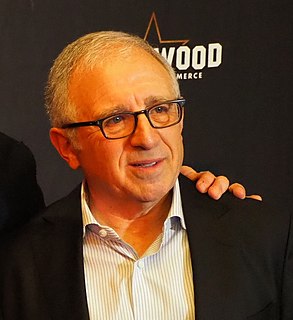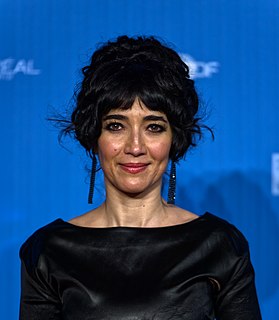A Quote by Daayiee Abdullah
I think one of the issues quite often, from a mental health perspective, that people find power behind a gun. Frequently, that is the issue behind most people. They feel a loss of power. They use a gun to sort of equalize things. And, of course, once the process begins, quite often people die in that process.
Related Quotes
One of the issues I think is very important, in many communities of color, there's a stigma about mental health. We find that the shaming that comes from acknowledging that one may have some issues that may relate to mental health, often people are not willing to go and seek additional help because of that shaming or that cultural stigma that's associated with it. And I think that we need to make this change in how people approach mental health.
Often you find actors have big hearts; they're quite emotional people. Talking to actors who date other actors, and talking to people who deal with other actors, they often get emotionally caught up in lots of different things. They often wear their hearts on their sleeves. They feel things quite a lot - often to the nth degree, which I can imagine could make it quite difficult to date some of us. I think it's about having an emotional availability that you can kind of draw on. But I'm also searching for that. I'll be searching for the answer to that question for the rest of my life.
One of the things we need to do is address mental health care as an integral part of primary care. People often aren't able to navigate a separate system, so you see successful models where a primary care physician is able to identify, diagnose, and concurrently help people get mental health treatment who have mental health issues.
You know I've had people come up and ask me to sign their guns. Sign my name on gun handles and holsters and stuff. I've done it once or twice for law enforcement officials, but when people do that -- and there have been quite a few of them lately -- I always tell them no. I don't want to do that. I don't want my name on that and I hope you use this gun, whatever its purpose is, I hope it's used wisely.
If the majority is moral then why do they need to be ruled by a group of people who are power hungry and gun hungry and probably not quite so good? And evil people want two things: they want something for nothing, and to escape the consequences of their actions, which is pretty much the definition of what government is.
Another thing is, people lose perspective. It is a cultural trait in America to think in terms of very short time periods. My advice is: learn history. Take responsibility for history. Recognise that sometimes things take a long time to change. If you look at your history in this country, you find that for most rights, people had to struggle. People in this era forget that and quite often think they are entitled, and are weary of struggling over any period of time
The civil rights movement didn't deal with the issue of political disenfranchisement in the Northern cities. It didn't deal with the issues that were happening in places like Detroit, where there was a deep process of deindustrialization going on. So you have this response of angry young people, with a war going on in Vietnam, a poverty program that was insufficient, and police brutality. All these things gave rise to the black power movement. The black power movement was not a separation from the civil rights movement, but a continuation of this whole process of democratization.
For a culture that has such a problem with death, we seem to deal with it in a quite bizarre way. We see people shot, killed and blown up, and we find it funny and sexy and all those things. But, the reality of it is that every day people die, and people are really sad and they grieve and they go through a really difficult process with it.
The trouble with audition process is, when you're an unemployed actor, it's the only time you get to act, and it can be quite fun. If you feel in control of the material and you feel that the people are pleased to see you and are excited by you auditioning for them, it can be a really rewarding process. But it can also be a very humiliating process.
There was no working title for the album. The record-jacket designer said `When I think of the group, I always think of power and force. There's a definite presence there.' That was it. He wanted to call it `Obelisk'. To me, it was more important what was behind the obelisk. The cover is very tongue-in-cheek, to be quite honest. Sort of a joke on 2001. I think it's quite amusing.
People feel very strongly about the Second Amendment. Their rights. And so if we can find, agree on, for example, that we should have responsible gun ownership just like we have responsible use of automobiles. Nobody wants someone getting behind the wheel that shouldn't be there. And the same is true with guns.
































